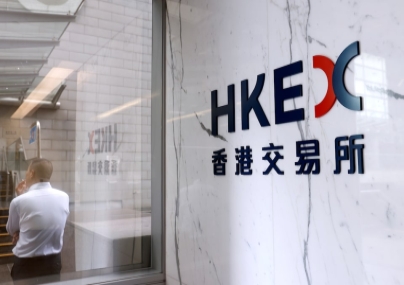
借助粤港澳大湾区的发展东风,华南律所品牌不断成熟,并逐渐展开更具“野心”的全国性布局:长三角及上海成为了他们目的地之一。
上海市律师行业信用信息服务平台显示,创立于广东省的律所品牌中,目前只有14家设立了上海办公室。而在2023年的55家上海百人所中,目前也尚未出现华南律所品牌的身影。
然而,这一局面或许正在变化之中。
2023年12月,上海发布《发挥城市功能优势 做强律师事务所品牌 加快推动上海国际法律服务中心建设的若干措施》,其中指出, 上海将在未来三到五年内引、育一批品牌知名度高、专业服务能力强的品牌综合型和品牌专精型律师事务所,形成上海律师事务所品牌方阵。
上述鼓励措施,叠加华南律所品牌日益成熟后东向进军长三角市场的需求,未来,华南律所或将成为长三角法律市场一股不可忽视的力量。
3月底,在深圳规模位居龙头的华商律师事务所正式开设上海分所,该分所将由执行主任吴波律师领导,是华商“迈入规模化发展2.0阶段的重要节点”。
上海分所是华商在全国的第48家分所,也是在杭州、南京、合肥、扬州布局完成后才开设的一家长三角分所,或许表明了华商在进驻较为强势的传统市场时的谨慎态度。
虽然如此,且由于外向型经济的特点,长三角地区在过去一年中发展略显疲软,法律市场也面临不少挑战,吴波律师对上海的整体前景却抱持较强信心。
“中国目前正处于经济恢复和转型升级的关键期,内外因素叠加导致经济回升向好基础仍需加固。但从经济数据来看,2023年长三角地区经济总量突破了30万亿元,今年一季度长三角四省经济同比增长全部超过5%,充分证明了该地区的经济活力。”他说。
从法律服务角度,变化和挑战也同样意味着机遇。吴律师指出:“近年来,长三角地区通过实施一系列政策措施,助力法律服务产业链优化升级,推动法律服务一体化和行业专业化发展,加强区域内法律服务的合作与交流,为法律市场的高质量发展提供了坚实保障。”
正是上述对市场机遇的判断,加之华商自身的长期发展战略,促使华商入驻上海、加速长三角布局。“设立上海分所是华商积极响应国家增强区域发展平衡性和协调性号召的表现,我们希望通过布局上海,加入到长三角与大湾区的深度融合中来,不断提升涉外法律服务能力。”
吴律师介绍,除保持在传统强势领域的专业优势之外,华商上海将聚焦国际金融、国际航运、合规、新能源、生物医药、ESG等新兴领域,建立全链条、跨地区的服务模式。近日,华商上海也迎来了知识产权专家余延华、跨境业务专家汤宇以及婚姻家事专家吴明和的加盟。
同样在3月,总部位于广州的伟途律师事务所正式落子上海,成为其跨出华南地区的首家分支机构。伟途是罗夏信律师事务所在中国内地的联营伙伴,二者于2016年正式建立联营关系。
谈及走出华南、进军长三角的原因,伟途管理合伙人周红律师告诉ALB:“尽管面临挑战,长三角地区仍然是中国经济最具活力的区域,法律服务市场仍然活跃,能够为伟途提供广阔的发展空间。经济发展的挑战更能促成新型生产力的萌芽和发展,这也是法律服务发展的好机遇。”
伟途自 2014 年成立以来,一直专注于为客户提供优质的跨境法律服务,这也与上海的国际化营商环境十分契合。“尤其在企业出海势头正盛的背景下,伟途上海办公室将继续致力于跨境领域服务。除了继续深耕企业与金融、诉讼等核心领域外,我们还拓展了新的业务领域,例如重组与破产、私人财富。同时,我们也持续关注新技术发展带来的全新法律需求,并充分发挥伟途与罗夏信联营所带来的专业和海外网络优势,更好地服务于境内外客户。” 周律师补充道。
跨区优势
中国不同区域的法律服务市场及服务提供商在专长、服务模式等方面都具备自身特点,也亟需相互借鉴。因此,如何将根植于粤港澳大湾区的优势带到长三角,也是华南律所思考和探索的问题。
基于在广东、海口、云南等自贸区的建设和制度创新,华商在律所联营、律师合作、资源置换等领域都积累了成熟经验,华商也期待将相关经验带到上海。
据吴波律师介绍,目前华商已联合多家律师事务所共同发起设立市场化商事调解组织——上海市虹口浦江经贸调解中心,以期利用和整合过去在大湾区设立或受委托运营前海一带一路法律联合会、前海国际商事调解中心、河套国际商事调解中心的成功经验,继续探索适合长三角地区的国际商事调解模式。
此外,“上海虹口区司法局与深圳福田区司法局已经签署了战略合作框架协议,聚力推动涉外法律服务,打造一体化城际法律联盟,促进涉外法律服务资源的交流和集成。华商积极参与两地司法行政机关的合作项目,并成功举办了第一届北外滩沪深港国际法律服务论坛,促进大湾区律师及粤港澳资源向上海流动”,他说。
如今,华商已经成功引进87位港澳律师,“相信上海分所会成为桥梁,帮助我们将沪港深澳资源进一步融合”。
周红律师也表示:“作为一家公司制律师事务所,伟途的广州和上海办公室能够充分共享客户、管理、业务等各方面资源,一体化的管理也有助于伟途不同办公室之间基于业务需要而进行人员调配。因此,伟途将充分发挥在两地的经验优势,为两地客户的跨区域发展保驾护航。”
基于华南律所品牌目前在长三角市场的发展现状,两位律师都认为,未来华南所的长三角办公室数量和规模将面临较大的发展空间。
“在上海市场,伟途希望发挥公司制律师事务所的优势,在上海更好地汇集和投入所内资源,发展现有业务的区域覆盖能力,并不断拓展新的业务领域,使上海办公室在未来的三到五年取得长足发展。”周律师指出。
吴律师则特别强调华南华东文化的融合,以及其对律所发展的助力。他表示:“华南地区作为改革开放的前沿,有丰富的涉外法律服务经验,如果能够继续延续这种创新基因,不断提升专业韧性,重视与上海本土文化的融合,利用好紧邻港澳的独特区位优势,拓展业务、重视人才建设,相信能够在长三角地区得到很好的发展。”
“其实上海乃至整个长三角地区的法律服务市场是巨大的,我们相信这个市场不仅能够容纳华商,也能够容纳所有希望在长三角地区获得进一步发展的华南律所。大家相互促进、良性竞争,同时也为上海法律服务行业注入新的活力,提高法律服务的多样性,促进整个法律服务市场的发展和创新。”吴律师展望道。
Next Stop: Shanghai
Thanks to the development of the Guangdong-Hong Kong-Macao Greater Bay Area, South China law firms are growing and embarking on a more ambitious journey toward Shanghai and the broader Yangtze River Delta.
The Shanghai Lawyer Credit Information System suggests that only 14 Guangdong-based law firms have offices in Shanghai as of 2023, and none of the 55 law firms with 100 or more practicing lawyers in Shanghai come from South China.
However, this may be changing. In December 2023, Shanghai released Measures to Develop Strong Law Firm Brands and Build Shanghai into an International Legal Service Center, which delineates the city's plan to build a lineup of law firm brands by attracting and cultivating comprehensive and boutique firms with brand awareness, professional expertise, and quality services.
Driven by these incentives and their desire to settle in the Yangtze River Delta region, South China law firms may emerge as a force to be reckoned with.
China Commercial Law Firm, one of the top law firms in Shenzhen, opened its Shanghai office in late March. Managed by executive director Wu Bo, the new office is a significant milestone for the firm as it enters the second phase of its expansion.
The launch of their Shanghai office, marking the 48th location in China and the first in the Yangtze River Delta after establishing a presence in Hangzhou, Nanjing, Hefei, and Yangzhou, suggests the firm's deliberate and cautious strategy in entering more entrenched traditional markets.
Over the past year, the Yangtze River Delta has seen a somewhat diminished export-oriented economy, with the legal sector facing a number of obstacles. Nonetheless, Wu maintains a strong sense of optimism regarding Shanghai's potential for development.
"China is in a critical period of economic recovery and transformation and upgrading, and the foundation for recovery still needs to be reinforced due to internal and external factors combined. Data show that the economic aggregate of the Yangtze River Delta region exceeded 30 trillion yuan in 2023, and the year-on-year growth of all four YRD provinces in the first quarter of this year exceeded 5%, which is ample proof of the region's economic vitality," Wu notes.
For legal services, changes and challenges promise opportunities. "In recent years, the Yangtze River Delta region has implemented a series of policies and measures to optimize and upgrade the legal service industry, promote integrated legal services and professional industry development, and strengthen cooperation and exchanges in the region. All this has safeguarded the high-quality development of the legal market."
The expansion into Shanghai and the region coincides with market opportunities and the firm's long-term development strategy. "Opening an office in Shanghai answers the country's call for promoting balanced and coordinated regional development. We want to contribute to the integration of the Yangtze River Delta and the Greater Bay Area and deliver better foreign-related legal services."
Wu emphasizes that the Shanghai office aims to build a full-chain, cross-regional service model by focusing on emerging areas such as international finance, international shipping, compliance, new energy resources, biomedicine, and ESG while maintaining professional advantages in traditional areas of strength. The office has recently brought in experts from various backgrounds, including Yu Yanhua (IP), Tang Yu (cross-border affairs), and Wu Minghe (matrimonial and family affairs).
Likewise, in March, the Guangzhou-based Wei Tu Law Firm opened its first location outside South China in Shanghai. Wei Tu became Stephenson Harwood's associated PRC law firm in 2016.
Wei Tu's managing director Zoe Zhou explains the reasons for expansion into the Yangtze River Delta market: "Despite the challenges, the Yangtze River Delta remains the most economically dynamic region in China and the active legal service market here can provide us with ample room for development. The economic challenges can catalyze new productive forces, and present good opportunities of development for legal services."
Since its inception in 2014, Wei Tu has been committed to delivering high-quality cross-border legal services, which fits happily with Shanghai's international business environment. "Especially when Chinese businesses flock to go overseas, the Shanghai office will continue to focus on cross-border services. In addition to the core business of corporate and finance and litigation, we have moved into areas such as restructuring and insolvency, and private wealth. At the same time, we keep an eye on legal needs arising from the development of new technologies, and leverage our advantages of expertise and overseas network as a Stephenson Harwood's associated firm. In this way, we can better serve both domestic and overseas clients," Zhou adds.
CROSS-REGIONAL ADVANTAGES
The legal service markets and service providers differ in expertise and service model across different regions of China, and there is an urgent need to learn from each other. Therefore, South China law firms need to think about how to bring their existing deep-rooted advantages to the Yangtze River Delta.
By developing and innovating within the free trade zones of Guangdong, Haikou, and Yunnan, China Commercial Law Firm has gained valuable experience in collaborative operations, attorney partnerships, and the sharing of resources. The firm aims to apply this expertise to its new ventures in Shanghai.
According to Wu, China Commercial has joined hands with peers to establish a market-oriented commercial mediation organization, i.e. Pujiang Commercial Mediation Center in Hongkou, Shanghai. By drawing on and integrating the successful experience of setting up or operating on commission the Qianhai Belt and Road Legal Service Federation, Shenzhen Qianhai International Commercial Mediation Center, and Lok Ma Chau Loop International Commercial Mediation Center, in the Greater Bay Area, the firm will explore an international commercial mediation model that suits the region well.
"The judicial authorities in Hongkou, Shanghai and Futian, Shenzhen have signed a strategic cooperation framework agreement to jointly promote foreign-related legal services, establish an integrated intercity legal alliance, and promote exchanges and integration of foreign-related legal service resources. China Commercial Law Firm has actively contributed to judicial and administrative cooperation between the two cities and organized the first North Bund Shanghai-Shenzhen-Hong Kong International Legal Services Forum to draw lawyers and resources from the Guangdong-Hong Kong-Macao Greater Bay Area to Shanghai," Wu says.
Now, the firm boasts 87 Hong Kong and Macao lawyers. "I believe the Shanghai office will be a bridge to integrating resources in Shanghai, Hong Kong, Shenzhen and Macao,” he adds.
Zhou provides insight into the strategic approach of Wei Tu, noting, "Wei Tu is a corporate law firm, so the Guangzhou and Shanghai offices can share resources of clients, management, and business, and integrated management also facilitates the deployment of staff between offices based on business needs. Wei Tu will fully utilize its experience in the two regions to safeguard the cross-regional development of our clients."
Both lawyers believe that South China law firms have huge potential for development in the region in terms of the number and size of offices.
"Wei Tu wants to utilize our advantages as a corporate law firm. By better pooling and investing our resources in Shanghai, we will expand the existing business to more regions and develop new business, so that the Shanghai office can make substantial progress in the next three to five years," Zhou points out.
Wu emphasizes the cultural integration in both regions and its role in the development of law firms. "As the frontier of reform and opening up, South China boasts rich experience in foreign-related legal services. If we can carry forward the gene of innovation, improve our professional resilience, promote fusion with the local culture, leverage the advantage of proximity to Hong Kong and Macao, expand our business, and cultivate talents, we can expect smooth development in the Yangtze River Delta region."
"The legal service market in Shanghai and the whole region is huge enough to accommodate not only China Commercial Law Firm, but also all the South China law firms trying to find a foothold in the Yangtze River Delta region. Through healthy competition, we will inject new vitality into the local market and diversify legal services in Shanghai, thus promoting the development and innovation of the entire legal service market,” he says.


